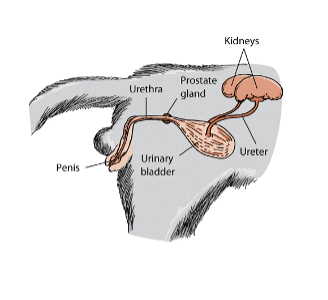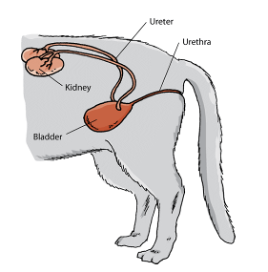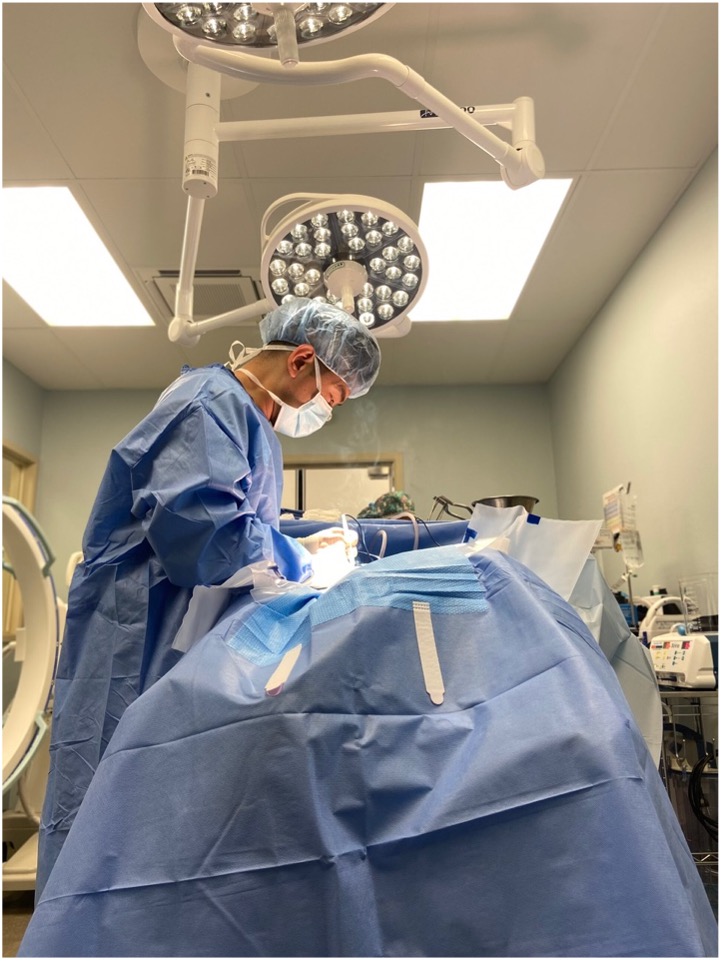Why is My Cat or Dog in Pain While Peeing?
If your beloved feline or canine companion is showing discomfort while urinating, it is time to talk about the crucial topic of urinary blockages. At Lenity, we understand that your pet’s well-being is paramount. In this article, we will cover the signs and causes of urinary blockages in cats and dogs, treatment, and the preventive measures you can take to keep your furry friend healthy.
Understanding Urinary Blockages in Cats and Dogs
Urinary blockages occur when an obstruction in the urinary tract prevents normal urine flow. Urethral obstructions can be caused by plugs (a mix of mucus, crystals, and inflammatory cells), stones, blood clots, masses, or congenital defects. Both male and female cats and dogs can develop urinary blockages; however, they are more common in males due to their narrower and longer urethras.
 |
 |
| Male Cat | Female Cat |
When urine cannot flow out of the bladder, it can cause pressure buildup, leading to discomfort and pain. Urinary blockages can result in kidney damage, bladder rupture, and even death if left untreated.
Signs and Symptoms of Urinary Blockages
Detecting urinary blockages in cats and dogs can be challenging as pets often hide their pain and do not show obvious symptoms until the condition has progressed. However, there are some signs that you can look out for, such as:
- Frequent attempts to urinate or difficulty urinating.
- Small amounts of urine produced or straining during urination.
- Vocalizing while urinating
- Blood in the urine
- Licking the genital area excessively
A Urinary Blockage in a Cat or Dog is a Medical Emergency
A urinary blockage is a serious medical emergency requiring immediate treatment. The urethra can become blocked entirely. When this occurs, urine will start to back up into the kidneys. Without treatment, the kidneys fail, toxins build up in the blood, and electrolyte imbalances occur, leading to death, sometimes in less than 24 to 48 hours.
If you suspect your pet may have a urinary blockage, it is crucial to seek veterinary care immediately. We will perform a physical exam and may recommend additional tests, such as blood work, urinalysis, X-rays, or ultrasound, to diagnose the condition accurately.
Urinary Surgery Procedures at Lenity
At Lenity, we understand that pet urinary issues can be alarming and require prompt attention. Urinary surgery is a specialized field of veterinary medicine that focuses on diagnosing and treating various conditions affecting animals’ urinary tracts.
Our doctors are well-equipped to perform a range of urinary surgery procedures, including::
- Cystotomy: This procedure involves making an incision into the bladder to remove urinary stones or address other bladder issues.
- Urethrostomy: We may perform a urethrostomy to treat urinary tract obstructions by creating a new opening in the urethra to bypass the blockage.
- Tumor Excision: Surgical excision (removal) of tumors and abnormal growths in the urinary tract is crucial in managing and preventing the spread of cancerous cells.
How do I Prevent Urinary Blockages in My Cat or Dog?
Preventing urinary blockages in both cats and dogs involves several strategies:
1. Proper Hydration:
Ensure your pet can always access clean, fresh water. Encouraging your dog to drink plenty of water can help prevent the formation of crystals and stones in the urinary tract. Cat water fountains can entice the feline in your life to drink more often.
2. Balanced Diet:
Discuss the best diet for your pet’s overall and urinary health with your veterinarian. This diet may include diets low in certain minerals that contribute to urinary stone formation.
3. Regular Exercise:
Regular physical activity helps maintain overall health and promotes urinary tract health by encouraging urination and preventing urine stagnation in the bladder.
4. Regular Veterinary Check-ups:
Schedule regular veterinary check-ups for your pet. Your general practice veterinarian can monitor your pet’s urinary health and detect potential issues early on.
5. Maintain a Clean Environment:
Keep your pet’s environment clean, including their water bowl and living area. A clean environment helps reduce the risk of bacterial contamination that can lead to urinary tract infections.
6. Observe Urinary Habits:
Pay attention to your pet’s urinary habits and note any changes in frequency, urgency, or appearance of urine. Contact your veterinarian if you notice any abnormalities.
7. Prevent Obesity:
Maintain your pet at a healthy weight to reduce the risk of obesity-related conditions, such as diabetes and urinary tract issues.
8. Address Stress and Anxiety:
Provide a stable and enriched environment to minimize stress and anxiety in your cat or dog. Cats are particularly prone to developing urinary crystals when they are under stress. Address any sources of stress for your pet, such as changes in routine, loud noises, pet conflicts, or separation anxiety.
9. Promote Urination:
Encourage your dog to urinate regularly by providing outdoor breaks and walking opportunities. Avoid holding your dog’s urine for extended periods, as this can increase the risk of urinary tract infections.
Multi-cat households require more than one litter box. The ASPCA recommends you have one for each cat in your household, plus one extra.
10. Address Underlying Medical Conditions:
Treat any underlying medical conditions promptly, such as urinary tract infections or anatomical abnormalities, to prevent the development of urinary blockages.
Following these preventive measures and staying attentive to your pet’s urinary health can help reduce the risk of urinary blockages and maintain your cat’s or dog’s overall well-being.
The Importance of Early Detection and Prevention
Don’t wait for this silent danger to escalate. At Lenity, we urge you to contact us at the first signs of a possible obstruction. Swift veterinary care is paramount in preventing complications and improving your pet’s chances of recovery.
Understanding the signs, risk factors, and preventive measures for urinary blockage can help safeguard your pet’s health.
Our Lenity Vet Specialists and Emergency Care team is here if your pet has a medical emergency or requires specialized treatment. We are a privately woman-owned specialty and emergency hospital offering advanced veterinary services, tailored patient care, and innovative medicine. We collaborate with your general practice veterinarian to ensure your pet gets the best treatment.
Your Caring Team,

